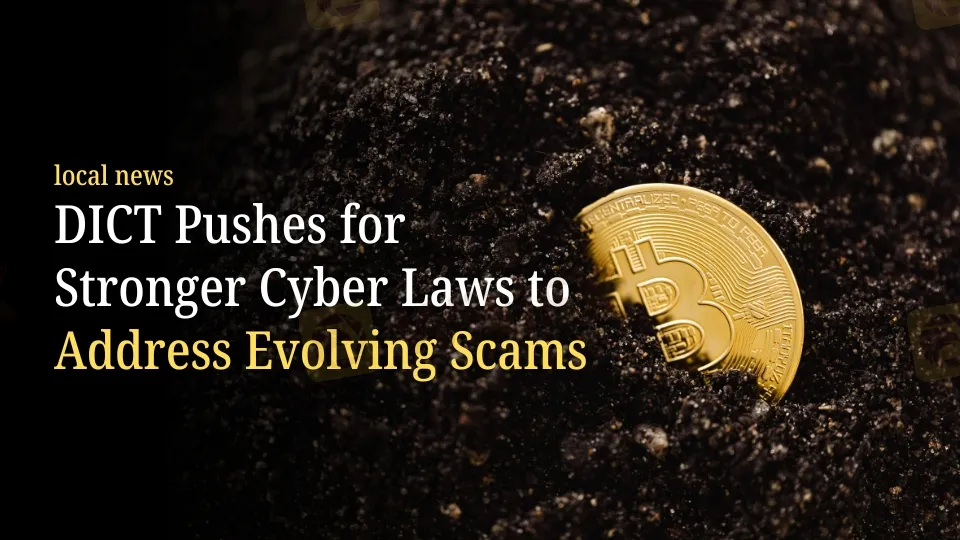Robinhood’s Bold Bet: Tokenized Stocks That Trade 24/7
Robinhood is reinventing stock trading with tokenized, 24/7 equities on the blockchain—ending settlement delays and redefining how markets move.
简体中文
繁體中文
English
Pусский
日本語
ภาษาไทย
Tiếng Việt
Bahasa Indonesia
Español
हिन्दी
Filippiiniläinen
Français
Deutsch
Português
Türkçe
한국어
العربية
Abstract:The DICT is advocating for stronger cybercrime laws to tackle the growing and evolving threat of online scams in the Philippines.

In recent developments, the Department of Information and Communications Technology (DICT) has urged lawmakers to amend the country's cybercrime legislation in order to battle new and complex schemes. DICT Secretary Ivan John Uy provided information on how fraudsters have changed in response to prior measures, including the SIM Card Registration legislation.
Despite the adoption of the SIM Card Registration Law, fraudulent SMS messages are on the increase once more. Secretary Uy stated that, while the registration effort has helped minimize scam operations, criminals have modified their plans and are employing new methods to fool people.
Uy observed that, while law enforcement has effectively shut down large-scale fraud organizations, criminals are now working in smaller, more nimble groups. “It's become guerilla warfare now,” he added, stressing that these tiny groups move rapidly and adapt to escape discovery.

Scammers are employing an unsettling new strategy known as “drive-by hacking.” This strategy includes crooks employing automobiles to hack into unsuspecting victims' mobile networks in local neighborhoods. The DICT has already detained some who utilize this approach, and it has been proven that much of the equipment used in these hacks is imported and illegal.
To meet these changing risks, the DICT is expanding its field activities. They are also collaborating closely with Congress to update and improve existing cybercrime legislation. Secretary Uy underlined the need for a larger and more inclusive legislative framework to combat various forms of online crime, such as fraud, hacking, and online damage.
“What we are actually working on with Congress is to amend the cybercrime law in order to have a more encompassing approach,” says Uy. He mentioned that other nations have implemented laws against online violence, which might serve as a model for the Philippines. This form of law would prohibit a wide range of internet behaviors that hurt individuals, including fraud and hacking.
The DICT's call for tougher cybercrime regulations is a crucial and vital move toward combating the rising menace of online fraud. With technology continually advancing, it is critical that the country's legal structure adapt as well. The Philippines can better safeguard its citizens from the ever-changing world of digital risks by updating its legislation to address the full range of online harms.

Disclaimer:
The views in this article only represent the author's personal views, and do not constitute investment advice on this platform. This platform does not guarantee the accuracy, completeness and timeliness of the information in the article, and will not be liable for any loss caused by the use of or reliance on the information in the article.

Robinhood is reinventing stock trading with tokenized, 24/7 equities on the blockchain—ending settlement delays and redefining how markets move.

STARTRADER partners with Porsche Carrera Cup Middle East for 2025/26, aligning trading precision with elite racing across six Gulf rounds. Explore exec quotes, regulatory insights, and branding strategy.

Trade Nation completes TD365 integration, unifying its brand and platforms under one global identity to enhance user experience and streamline trading operations.

INFINOX secures UAE CMA Category 5 license, expanding its regulated presence in the Middle East with a focus on transparency and strategic growth.
